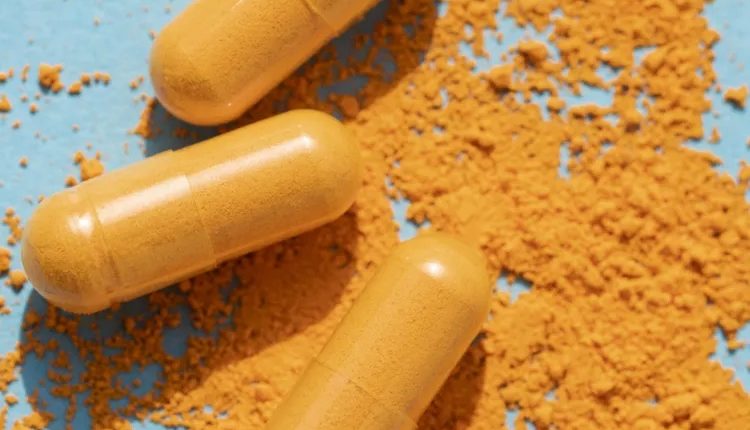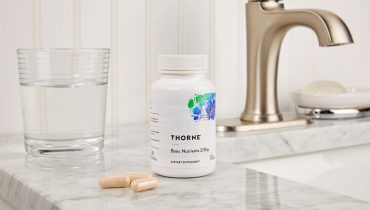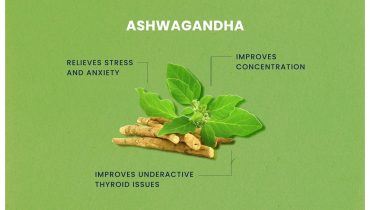Is a turmeric supplement yet another health trend or might it be the missing link in your wellness jigsaw?
Should you be looking for solutions to liven up your wellbeing regimen, turmeric pills most likely pique your interest. Appreciated for their potential to reduce inflammation, these golden capsules have gained popularity among people looking for natural means of support for their well-being. Unlike the spice you would usually use in cooking, turmeric pills are often made with more concentration of strong components and better absorption. Do they, then, truly live up to their assertions?
We spoke with certified dietitians to dissect the advantages, possible drawbacks, and knowledge you should have before including turmeric pills into your daily routine.
What Is Turmeric?
Native of Southeast Asia, the golden-yellow spice turmeric derives from the root of the Curcuma longa plant. For thousands of years, turmeric—with its distinctly warm, earthy taste—has been utilized in traditional medicine and cuisine.
Its useful chemicals really provide value. Most importantly, Meghan Pendleton, M.S., RD, a registered dietitian, notes that turmeric has active components known as curcuminoids that have been identified and investigated for their benefits to the body. Among the class of curcuminoids, curcumin is usually advised as a good supplement for many different health issues, as described below.
Health Benefits of Turmeric
May Lower Inflammation
Although the body’s healing process naturally and necessary involves short-term inflammation, prolonged inflammation—also known as chronic inflammation—may help to start chronic diseases. Of all the natural medicines, turmeric is most well-known for fighting inflammation. “Its active compound, curcumin, is the driving force behind its anti-inflammatory effects,” explains functional registered dietitian Emily Niswanger, M.S., RDN. By blocking the routes leading to an inflammatory reaction, curcumin supplements have been demonstrated to lower inflammation, Niswanger notes. Furthermore acting as an antioxidant, curcumin helps the body eliminate free radicals that harm healthy tissues and cells.
May Reduce Joint Pain
Additionally found to reduce joint pain are anti-inflammatory and antioxidant qualities of turmeric. Erin Kenney, M.S., RDN, a registered dietitian, notes that curcumin helps lower joint pain and stiffness by blocking inflammatory pathways like tumor necrosis factor-alpha (TNF-α) and cyclooxygenase-2 (COX-2), typically overactive in arthritis. Studies have indicated, she underlines, that turmeric supplements can be as effective as some nonsteroidal anti-inflammatory medicines (NSAIDs) in reducing osteoarthritis symptoms without the related side effects, such indigestion, constipation, drowsiness and dizziness.
More high-quality study is still required, though, to validate its efficacy and ascertain the ideal dosage for joint pain relief.
May Support Heart Health
Maybe the curcumin in this golden spice will improve your cardiac condition. “Curcumin helps lower systemic inflammation, oxidative stress and LDL cholesterol oxidation, all of which contribute to heart disease,” notes Kenney. She also emphasizes how it enhances endothelial performance, therefore supporting normal blood vessel operation and circulation. According to some studies, used for more than 12 weeks, turmeric supplements might help reduce systolic blood pressure. On diastolic blood pressure, though, Niswanger notes no effect. In your blood pressure measurement, systolic blood pressure is the top number; diastolic blood pressure is the bottom number. Although these results are positive, more study is required to completely grasp the long-term effects of turmeric supplementation on cardiac condition.
May Improve Gut Health
Turmeric pills might also help with stomach issues. “Due to its anti-inflammatory and antioxidant properties, curcumin can help reduce inflammation in the gut, so perhaps benefiting conditions like irritable bowel syndrome (IBS) and inflammatory bowel disease (IBD),” explains Kenney. She says that by boosting the growth of good bacteria and lowering the bad ones, curcumin can also help to maintain a healthy gut flora. She also observes that it might help bile generation, which is needed for general digestive health and fat breakdown.
Potential Risks and Precautions
While curcumin, the active ingredient in turmeric, is generally safe at doses up to 8 grams, it does come with risks.6 Kenney notes that some individuals may experience common gastrointestinal side effects, including nausea, diarrhea and bloating. Additionally, turmeric supplements may interfere with iron absorption, particularly affecting those with iron-deficiency anemia, explains Pendleton.12
Liu S, Liu J, He L, et al. A comprehensive review on the benefits and problems of curcumin with respect to human health. Molecules. 2022;27(14):4400. doi:10.3390/molecules27144400
Rare but serious side effects, such as liver injury, have been reported in case studies involving high-potency curcumin supplements, says Niswanger. Fortunately, symptoms of liver toxicity typically resolve once supplementation is discontinued.13 Kidney issues, including an increased risk of kidney stones, have also been linked to turmeric supplements.12
The lack of standardized formulations in turmeric supplements raises concerns about quality and safety. Pendleton says that without chemical analysis of every batch, it’s difficult to know the precise composition of the product you’re taking. She adds that contamination with heavy metals, stemming from the soil in which turmeric is grown, is another potential risk due to inadequate safety testing.
Who Should Avoid Taking Turmeric Supplements?
While some people may benefit from taking turmeric supplements, others may need to avoid them. “Caution is advised for individuals with gallbladder issues, bleeding disorders, kidney stones, or hormone-sensitive conditions,” says Kenney. Pregnant and breastfeeding individuals should avoid high-dose turmeric supplements, as their safety has not been adequately studied in these groups. In addition, people taking certain medications such as blood thinners, antidiabetics, antacids, immunosuppressants and hormone therapies should consult a health care provider before supplementing with turmeric due to potential adverse interactions.









